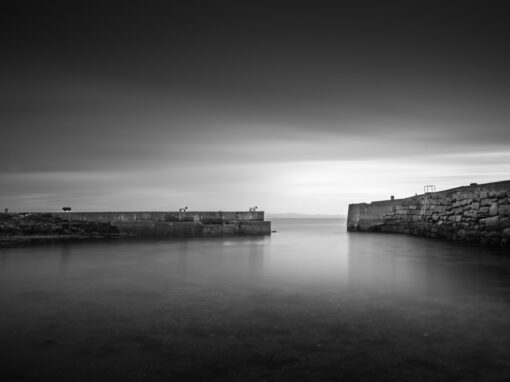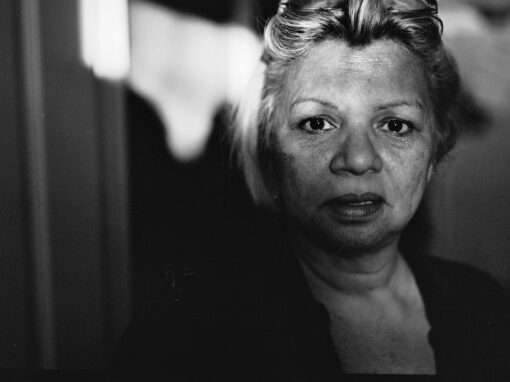The 2024 edition of Les Rencontres de la Photographie D’Arles, the renowned international photography festival, arrives with a profound thematic focus, reflecting on the complex interplay between war, nature, and cultural habits. This year’s festival transcends mere aesthetic appreciation, delving deep into the narratives that shape our collective consciousness. Through a series of meticulously curated exhibitions, the festival explores the visceral impacts of conflict, the intricate beauty and fragility of our natural world, and the rich tapestry of cultural practices that define human existence.
As the world grapples with ongoing conflicts, environmental crises, and shifting cultural landscapes, Les Rencontres de la Photographie D’Arles 2024 provides a poignant and timely reflection on these pressing issues.
Nature as a Central Theme
As the world becomes increasingly aware of environmental issues and the profound impact of human activity on our planet, the 2024 edition of Les Rencontres de la Photographie D’Arles turns its gaze towards nature. This year’s festival prominently features works that explore the beauty, complexity, and fragility of the natural world. Two standout exhibitions, by Cristina De Middel and Nicolas Floc’h, epitomize this thematic focus, offering compelling visual narratives that challenge and inspire audiences.
Cristina De Middel: Journey to the Center

Cristina De Middel’s Journey to the Center presents the Central American migration route across Mexico as a heroic and daring journey inspired by Jules Verne’s Journey to the Center of the Earth. Starting from Tapachula on the Mexico-Guatemala border and ending in Felicity, California, this narrative combines documentary photography with constructed images and archival material. The exhibition critiques the simplistic portrayal of migration in media, offering a more nuanced and multi-layered narrative.

Looking closely at the continents and peoples Cristina has approached over the years with her photojournalistic work, with sarcasm and wit, the photographer and artist tends to highlight how we can change the reality around us with concrete actions. Raising awareness, therefore, becomes the tool she uses to stir people’s consciences through her images. A strong ethical and philanthropic work aimed at creating pure and touching images.
Nicolas Floc’h: Rivers Ocean

Nicolas Floc’h’s “Rivers Ocean” series explores the course of water from various watersheds, including the Mississippi, Rhône, Loire, and Seine. Through panoramic underwater photographs, Floc’h captures the dynamic colors and nuances of water, emphasizing its role in shaping and transforming landscapes.

This exhibition offers an immersive look into the American landscape and the water cycle, presenting a unique intersection of color, light, and environmental observation.
The Art of War in Randa Mirza and Stephen Dock’s Works
This edition of Les Rencontres de la Photographie D’Arles investigates the harsh realities and enduring impacts of war, presenting thought-provoking exhibitions that scrutinize the theme from unique perspectives. Central to this exploration are the works of Randa Mirza and Stephen Dock, whose exhibitions, Beirutopia and Echoes, respectively, offer powerful insights into the complexities of conflict and its aftermath. Together, these exhibitions form a crucial part of Les Rencontres de la Photographie D’Arles 2024, engaging audiences in a profound dialogue about the enduring impacts of war. By presenting the works of Mirza and Dock, the festival not only showcases their artistic talents but also underscores the importance of understanding and reflecting on the long-term consequences of conflict. Through their lenses, we are invited to see beyond the immediate chaos of war, exploring its deeper and often hidden ramifications on societies and individuals.
Randa Mirza: Beirutopia

Beirutopia by Randa Mirza is a visual essay reflecting on Lebanon’s multidimensional crisis through the transformation of post-war Beirut. The exhibition features works produced between 2000 and 2022, including The Sniper, Abandoned Rooms, and Parallel Universes. These pieces critically examine the brutality of post-war reconstruction and the loss of urban identity, blending utopia with reality to highlight the ongoing political, financial, and social challenges.
Stephen Dock: Echoes

Stephen Dock’s Echoes revisits his photographic archive of the Syrian war and its ensuing humanitarian crisis. Initially documenting the conflict with a traditional, photojournalistic approach, Dock now reinterprets his images, stripping back and manipulating them to challenge the conventional visual mythology of war. This deconstruction of war imagery offers a fresh perspective on the modern conflict.

These last two exhibitions, in particular, draw the viewer’s attention to the horrors of war that surround us on a daily basis, leading us to reflect on the futility of the destruction of places and peoples that war itself brings. Moreover, exhibiting photographs with a powerful symbolic meaning but also with a deflagration emotional impact arouses the viewer’s profound empathy with certain topics, which are not always treated carefully by the international media.
This is one of the most relevant aspects of an exhibition such as ‘Les Rencontres de la Photographie D’Arles’ for which it is worth going in person, because in addition to the cosmopolitan allure that can be savored during the days when it is open to the public and journalists, with a series of talks and events throughout the city, the sociological and political significance of the event always places it among the best in the world in this field.
Political Photography and Sociological Trends
Les Rencontres de la Photographie D’Arles 2024 shines a spotlight on the intersection of politics, society, and photography, showcasing works that analyze socio-political landscapes shaping our world. This year’s festival highlights the growing trend of political photography, presenting exhibitions by Debi Cornwall, Mary Ellen Mark, and Rajesh Vora. These artists use their lenses to reveal, critique, and document the profound sociological trends and political realities of our time.
Debi Cornwall: Necessary Fictions and Model Citizens

Debi Cornwall’s exhibition features two interconnected bodies of work: Necessary Fictions and Model Citizens. Through vivid, composed color photographs, Cornwall examines the fictions fuelling America’s self-perception. Necessary Fictions documents realistic war games on U.S. military bases, while Model Citizens explores immersive training scenarios, Trump rallies, and historical museums.

Her work critiques how state power is performed and normalized in a militarized culture, provoking viewers to reconsider their understanding of citizenship and violence.
Mary Ellen Mark: Encounters

One of the most anticipated exhibitions of this year is Mary Ellen Mark: Encounters, which explores the profound humanism that characterized Mark’s work. Known for her empathetic and persevering approach, Mark focused on individuals from diverse and often marginalized backgrounds.
The exhibition features five of her most in-depth projects, offering insights into the lives of institutionalized women in the Oregon State Hospital, street children in Seattle, sex workers in Mumbai, the needy and dying in Mother Teresa’s charities, and traveling circus families in India.

“I photograph people who are the victims of society because I care about them. And I want the people who see my pictures to also care,” Mark said. This exhibition not only showcases Mark’s iconic images but also includes rare archival materials like contact sheets and personal notes, providing a deeper understanding of her long-term projects. Co-curated by Sophia Greiff and Melissa Harris, the exhibition features iconic photographs from Mary Ellen’s major projects and a selection of contact sheets, magazines, and personal notes, including the most amazing photo about feminism, including many of the most astonishing photographs of American society in the 1970s that laid the foundations for momentous changes in the way Americans and other countries around the world lived.
Rajesh Vora: Everyday Sculptures of Punjab


Les Rencontres de la Photographie D’Arles exhibition always pays particular attention to highlighting photographic trends, which, although they belong to niche phenomena on the world scene, underline sociologically relevant points of view. Rajesh Vora’s fascination with the vernacular craft of sculptural objects adorning rooftops in Punjab’s hinterland is explored in his exhibition, which is one of these.
Beginning in 2014, Vora documented the colorful objects that represent the aspirations and achievements of Non-resident Indians (NRIs). His work captures battle tanks, weightlifters, heroes, footballers, and airplanes that dramatically punctuate the village skylines. This cultural and sociological phenomenon reflects the personal histories of their creators, offering a narrative filled with humor, celebration, and remembrance.
Les Rencontres de la Photographie D’Arles has long been a beacon of innovation and insight in the world of photography, consistently offering exhibitions that not only showcase artistic talent but also provoke thought and dialogue on critical issues. As we engage with these powerful visual narratives, we are reminded of the transformative power of photography to document, question, and inspire, highlighting the significance of Les Rencontres de la Photographie D’Arles in fostering a deeper understanding of our world.
ABOUT THE AUTHOR
Silvia Ionna is the Art Director for the independent art and travel publisher Dinamica Immobile. She writes about photography, art, and books for various online magazines.




